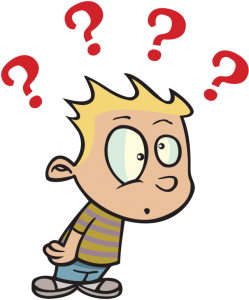A strong foundation in language (no matter what the native language might be) is a significant variable in learning to read. Language development Really Does Matter.
When a child is learning to read he uses three types of cues from the story:
- He searches what he sees in the actual print (the letters and the words).
- He searches for meaning in the pictures and the story he’s reading.
- He searches the syntax (the language structure) and tries to make sense of what would sound right structurally in the story.
When a child picks up a book but lacks a strong language foundation then reading becomes a difficult and frustrating task.
In the first grade classroom, my heart broke for students who were struggling to read. Their struggles often had nothing to do with their cognitive ability. Their struggles were often a direct result of poorly developed language. Many of our struggling readers came to school without:
- words to express themselves
- vocabulary to speak about or successfully understand the content of stories
- language structure for what might sound right in their reading attempts
From my experience in the classroom, too many parents today truly believe that education begins when a child starts school in a formal setting. They (and many politicians) also believe that the classroom teacher will be able to catch a struggling child up in their first years of formal education. Unfortunately, research tells us that neither is true.
Birth to 24 months is considered to be the most critical time in a child’s language foundation learning. In fact, the size of a child’s vocabulary at 24 months is an indicator of the child’s future language (and thus literacy) development. Children who do not engage in conversations with adults in these formative years enter school with delays.
A strong language foundation and future literacy achievement require time and attention by caregivers who specifically introduce children to meaningful language and rich vocabulary. This does not require a teaching certificate or an expensive curriculum. It doesn’t even require a high school diploma. Begin with the following free activities at birth and give your child the best language foundation possible:
- Get a public library card and check out children’s books by the basket full.
- Read books to your child every night as a part of your evening and bedtime routine.
- Spend 15 minutes outside every day. Call attention to the “big, brown dog with long, shaggy hair”, and the “yellow, plastic slide with red steps”. Explain that “the big, bright, yellow sun feels warm”, and the “puddle of water feels cold and wet when we touch it with our fingers and toes”. Repeat these explanations over and over again. Your child is learning vocabulary and structure long before they can repeat your words.
- Use your daily routines to build language. For example, secure your child in a seat beside you as you cook dinner and talk to your child as you work; “I’m going to cut up a big red tomato and a crunchy orange carrot for dinner. First, I wash the vegetables. Then I dry them. Then I use a sharp knife. Knives can cut you. We have to be careful with knives.”
Do you have other recommendations for fostering language during the first 24 months of a child’s life? Please, add to the conversation below 🙂
For more from Marea, check out Me and Thee Studios’ faith based leveled readers for 1st-2nd graders at http://www.meandtheestudios.com/early-reader-collection.html.

